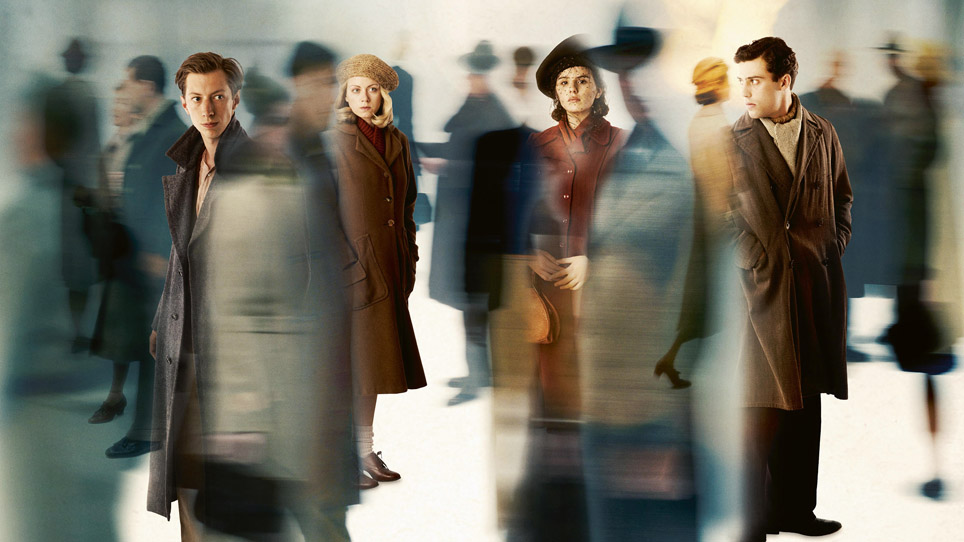Film: “The Invisibles” Is a Testament to the Intelligent Creativity, Determination, and Mazal Necessary to Survive against Impossible Odds
 By Susan L. Rosenbluth
By Susan L. Rosenbluth
In 1940, it is estimated that, despite Nazi laws forbidding it, about 7,000 Jews remained underground in Berlin. Concealed in attics, basements, and warehouses, and protected by courageous non-Jewish Berliners, these Jews, often hiding in plain sight, were well aware that, if detected by anyone, they and their guardian angels risked death or deportation.
By February 1943, the Nazis’ Minister of Propaganda, Joseph Goebbels, felt sufficiently confident to announce that the Reich’s capital was officially judenfrei, free of Jews, who, before the war, had numbered about 160,000. It was a declaration taken at face value by the Nazis’ allies as well as their enemies. Nevertheless, when the Russians reached Berlin in early 1945, they liberated 1,700 Jewish survivors in the city.
A new film by Claus Räfle along with writer Alejandra Lopez grippingly traces the stories of four real-life German-Jewish teenagers who managed to stay in Berlin and survive to be liberated. Originally entitled Die Unsichtbaren, the film, with English subtitles, is aptly called “The Invisibles.”
The film, which combines dramatic recreations of what happened to the four youngsters and insightful interviews with the actual individuals decades later, when all of them were senior citizens, accomplishes what would seem to be impossible: It is a thriller that keeps the viewer on the edge of the seat even though the outcome is clear after the first few minutes. The viewer knows the four young Jews survive, but the narrative is so compelling, the acting so powerful, the images so effective, and the interviews so engaging, the 110-minute film leaves the viewer breathless.
Cinematically, Mr. Räfle uses actual footage of wartime Berlin to tell the stories of 17-year-old Hanni Levy (Alice Dwyer), whose German protector encourages her to dye her hair blonde, making her appear to be an unremarkable Aryan; art student Cioma Schönhaus (Max Mauff), who bids his parents an emotional farewell and becomes a forger of passports through which he and his protector save dozens of other Jews; 16-year-old Eugen Friede (Aaron Altaras) who, thanks to his Gentile stepfather, finds a succession of safe-houses and protectors, many of them communists, and eventually winds up with a resistance group distributing anti-government leaflets; and Ruth Arndt (Ruby O. Fee), who secures employment in the home of a Nazi officer who is aware that she is Jewish and protects her anyway.
Without giving away any other details of this riveting and important film, which contains little-known and often hard-to-believe information about Jewish-underground life in Berlin, Jewish viewers of whatever religious stripe should come away from The Invisibles with one crucial piece of advice: Make sure your children learn well the affirmation of Judaism and declaration of faith, the Shema.
Prior to its national roll out, The Invisibles will open on January 25 in New York at the Landmark 57 West (657 West 57th Street, at 12th Ave) and Quad Cinema (34 W 13th St). It should not be missed.





